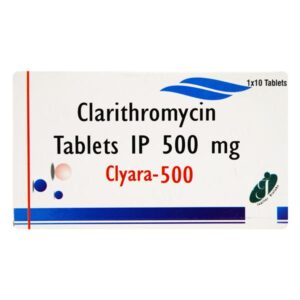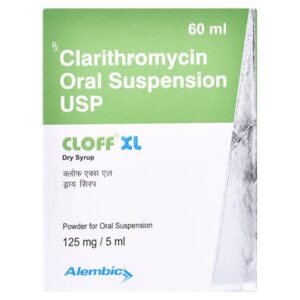CLARITHROMYCIN
CLARITHROMYCIN: Drug: CLARITHROMYCIN
Use: Clarithromycin is a macrolide antibiotic used to treat a variety of bacterial infections. It is commonly used to treat respiratory tract infections such as pneumonia, bronchitis, and sinusitis. It is also effective against skin and soft tissue infections, as well as certain sexually transmitted infections like chlamydia.
Mechanism of Action: Clarithromycin works by inhibiting bacterial protein synthesis. It binds to the bacterial ribosomal subunit, preventing the translocation of tRNA and inhibiting peptide chain elongation. This ultimately leads to the inhibition of bacterial growth and the elimination of the infection.
Dose: The recommended dose of clarithromycin depends on the specific infection being treated. For respiratory tract infections, the typical adult dose is 250-500 mg twice daily, while for skin and soft tissue infections, the dose is often higher at 500-1000 mg twice daily. The dosage may vary for children depending on their weight and age. It is essential to follow the prescribed instructions and complete the full course of treatment.
Side Effects: Common side effects of clarithromycin may include gastrointestinal symptoms such as nausea, vomiting, diarrhea, and abdominal pain. It may also cause taste disturbances, loss of appetite, and an increase in liver enzymes. Rare but serious side effects include severe allergic reactions, irregular heart rhythms, and liver dysfunction. Clarithromycin may interact with certain medications, so it is important to inform your healthcare provider of any other drugs or supplements you are taking.













